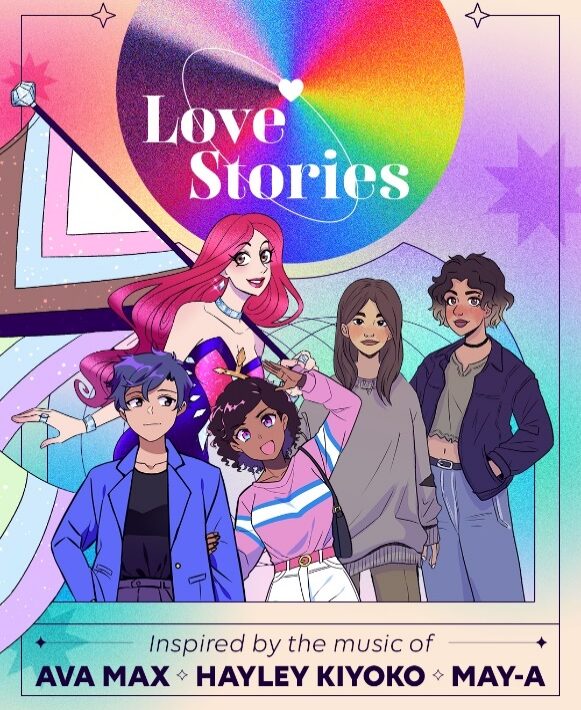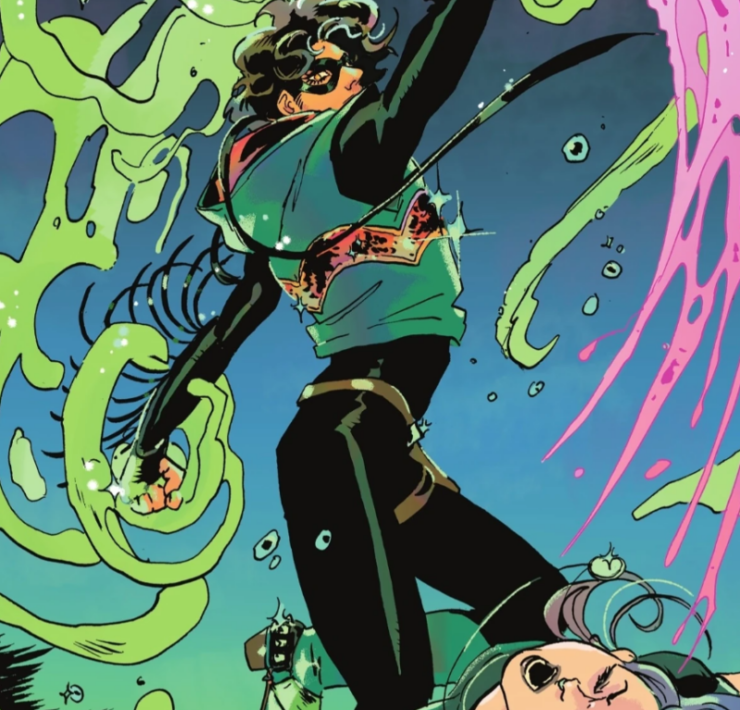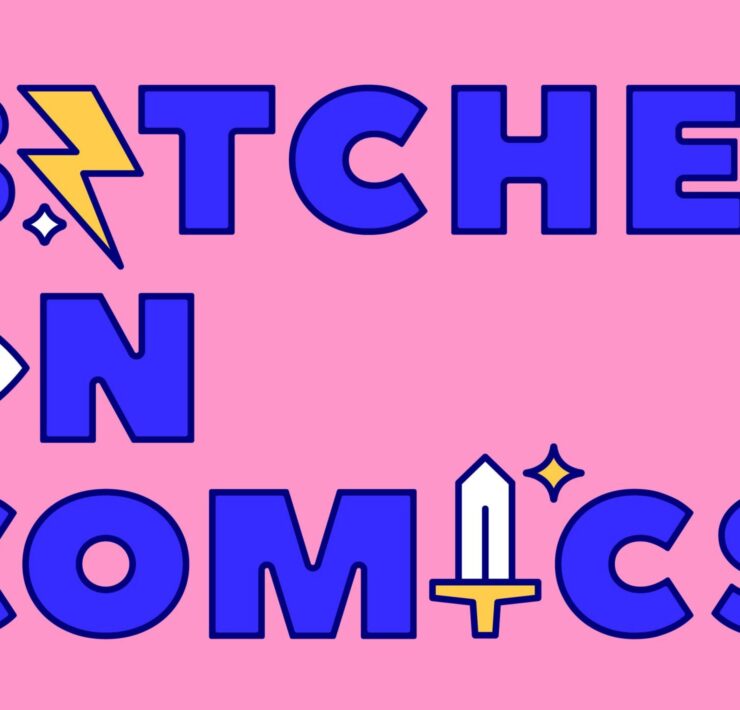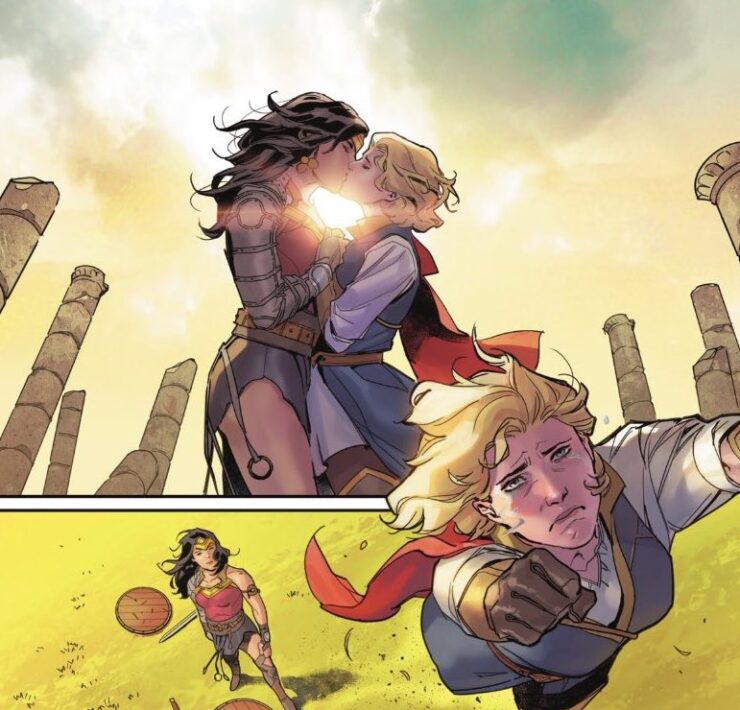Your Guide to Queer at Denver Pop Culture Con

Addison Herron-Wheeler is OUT FRONT's co-publisher and editor-in-chief and friend…
Denver Pop Culture Con is almost here, but is it queer? The answer is a resounding “yes.” There is so much cool inclusion at this year’s event, from folks who write theatre comics to sci-fi authors and cosplayers. Since the event is so big and you only have so much time, we’ve laid out a few of the folks you absolutely need to try and see.
 Andy Mientus
Andy Mientus
If you were lucky enough to catchy the new rendition of beloved musical Tommy when it was in Denver, you’ve already been up close and personal with Andy Mientus. He played Tommy with such raw emotion that we were all sure we had fallen into a rock opera time-vortex and were going to be pinball styles.
It turns out, singing and acting aren’t the only things Mientus can do. He will be at Pop Culture Con this year for his youth comic series, The Backstagers. The books follow the adventures of high school theatre kids as they navigate the pitfalls of theatre and growing up.

“All of the characters have something that sets them apart as far as sexuality or gender identity goes, or being intersectional in some other way,” he explained. But none of the stories hinge on those things. The stories are about friendship and adventure and what makes theatre magical rather than being about trauma, coming our, or not being accepted, which are often the kind of stories we are used to seeing in queer literature.
The stories touch on young love, life in theatre, and even a character who is trans and switches from an all-boys school to an all-girls school, but the focus is always on positive representation. Stop by to see Mientus and grab some of his wholesome youth literature.
 Zan Christensen
Zan Christensen
Zan Christensen runs Northwest Press, one of the only queer-focused comic publishers out there. He has also made a name for himself publishing work that focuses on issues of LGBTQ bullying and inclusion. Today, he would just like to see other artists getting to express their queer creativity the same way.
“I feel like in a lot of ways, my job is not to make the art but to make a really nice frame, to curate, to provide a space for people to tell their stories. It makes me feel good to help people, because most of the folks who are doing comics are not established, high-powered, blockbuster names. There are always going to people who need help to get their stories off the ground and to reach their audiences. I want people to be heard, and any excuse to make comics is worthwhile in my opinion.”
Christensen will mostly be at Pop Culture Con to promote newer work out with Northwest Press, but is will always be thought of as a groundbreaking queer comic artist.
 Andy Mangels
Andy Mangels
Some people have been fighting the good fight for a while, to borrow a superhero analogy, and Andy Mangels is one of those people. He’s been writing science fiction and comics for most of his life, and he has always advocated for his queer fam and other marginalized folks along the way.
“Comics gave me a way to escape and a way to imagine how it could be for people to be something other than what they were,” he explained. “Especially with superheros, it wasn’t just wish fulfillment; it was a way of being better.”
Mangels saw the actions of the heroes he admired and thought about how to put those same skills towards helping those were marginalized.
“Activism just kind of came naturally to me,” he explained. My parents really raised me to be involved in the community and try to make things better for people, and so once I got into comics and also came out, it just made sense. I was always looking at how I could put a person of color in a role, or a queer person in a role, or someone who is differently abled or has different religious beliefs. I was always actively looking as a writer for ways to create, and I don’t know why someone would want to create something that is just white and male.”
 Adam Ellis
Adam Ellis
First making his name through Tumblr meme cartoon culture and a role with Buzzfeed, Adam Ellis has the art of telling everyday stories and making them exciting down to a science. He was so successful, in fact, that he eventually left Buzzfeed to pursue freelance opportunities and have more creative freedom.
“I write about things that are funny and things that I enjoy,” he said. “I have never really seen it as adding queer themes into my comics, because I think that my comics are queer just by nature of me being queer. So, I don’t have to do anything to make that happen; I feel like it comes naturally. I try to make my comics as diverse as possible whenever there’s an option to do that, because I know how important it is for people to see themselves reflected in the media that they consume. I know I have a lot of younger readers, and it’s cool to get messages from kids who are inspired by my comics.”
 Gail Carriger
Gail Carriger
“I like to think of what I write as queer comfort food,” comic artist Gail Carriger explained to OUT FRONT. “I always have queer characters, although they aren’t always the main characters. Since I write primarily comedy in various genres, my stuff tends to be more silly and gentle then most—books that are hugs. Lots of found family, heroine’s journeys, happy ever afters, honest (if snarky) communication. I know, I know, how wholesome. But also kinky and charming and lots of fun. Sometimes super sexy, too.”
As a humorist, Carriger may traffic in comic writing, but she has not shied away from any of the hard-hitting issues facing the queer community, from trans rights and the different ways reltionshops can look to the issues our community faces.
“There are tons of amazing writers doing fantastic work to push boundaries in queer spaces, many with justified anger and suffering,” she said. “It’s powerful and necessary. But, as a comic writer, I’m more inclined to be insidious. The great advantage of writing fluff is, people don’t take you seriously, and then you can wiggle your way into changing their minds despite themselves.. At it’s heart, my new book, The 5th Gender, is a light, romantic, cozy mystery; it just happens to feature the cutest, snarkiest alien ever who also happens to be a member of a species with five genders. I can hope that this book may trick readers into thinking about how they define gender to themselves, and why a black-and-white perspective is damaging, not to mention the dangers in associating gender with biological sexual characteristics and codified social norms. Perhaps they will even chat about such things with others. I could go into my academic thoughts on the implicit, culture-wide danger of any biologically deterministic approach to dictating human behavior, but mostly, I want people to read my book, smile, be happy, and think about their role in ensuring the happiness of others.
 Molly Lee
Molly Lee
Although she identifies as an ally and not a direct part of the queer community, Molly Lee has a definite queer agenda when it comes to what she writes. Her mission is to write feminist stories about women who excel in the world of tech, a field that is still very male-dominated.
“Ask Me Anything is going to release May 7, and I’m really, really excited about it, because it features a young girl coder and really shows the double-standards between boys and girls in that area. She creates this anonymous blog where anybody can write in, and it’s supposed to be about sex advice, but it quickly evolvves into peers writing in for help dealing with identity issues, instances of abuse, things like that. It gives these kids a safe place to talk about what their school is trying to squash out of them.”
In order to make sure she is portraying queer characters accurately, Lee always does her research.
“I never want to presume to write something that I don’t know about, so I’m always going to dig in and do the research,” she said. “There was a good year of research that went into this book, and I always want to be super inclusive. I want to do the culture justice, whatever culture I am featuring.”
 K.B. Wagers
K.B. Wagers
Sci-fi has long been a place where ideas about rebellion, strength, and opposition to the status quo can be sewed, and K.B. Wagers is holding to that tradition.
“Opening ourselves up to the spirit of exploration and the incredible diversity available to us is going to be the only thing that saves the human race,” they said. “Science fiction and fantasty writers and reviewers are already doing such amazing things with the likes of N.K. Jemison, Nnedi Okorafor, Tasha Suri, and Dr. Liz Bourke leading the charge with bright new worlds rather than the same old themes we’ve all seen time and again.”
Her novels focus on a queer, female warrior transversing the stars, and she believes that science fiction should be a place where everyone can find comfort and express who they are.
“I think it’s on us SFF writers to write the worlds we want to see come to life, and for science fiction especially, we’re writing about the worlds we believe are possible. I want a world where people are safe no matter who they love or how they identify. “
 Yves Navant
Yves Navant
Yves Navant is creating a queer legacy with his comic 13: The Astonishing Lives of the Neuromantics. Set in a bleak future where the rich can purchase body parts from the poor and queer folks are shut out of society, 13 tells the story of a man questing to get his identity back.
“It’s kind of a semi-autobiographical story centered around a society of privilege and the underclass,” he explained. “I am the youngest member of a European family who immigrated to american in the late 20th century, and we didn’t always have much. I was a creative and just kind of an outcast, and I identify as a gay man, so, for white, suburban America, I kind of checked all the boxes of someone who would be ostracized or bullied to be an outcast. And to add to that, the idea that I grew up wanting to draw pictures more than kick around a soccer ball on the playground or talk about girls really made me an outcast.”
 13 is a story full of dark, powerful imagery and difficult situations that are all-too-similar to the actual society we live in.
13 is a story full of dark, powerful imagery and difficult situations that are all-too-similar to the actual society we live in.
“These feelings of ostracization and being an outcast and the political climate mirrors what we’re experiencing now in 21st Century America regarding gender expression, sexuality, faith, and spirituality, and the haves and have-nots. I think life and the environment we are existing in right now is kind of what compelled me to tell the story.”
What's Your Reaction?
Addison Herron-Wheeler is OUT FRONT's co-publisher and editor-in-chief and friend to dogs everywhere. She enjoys long walks in the darkness away from any sources of sunlight, rainy days, and painfully dry comedy. She also covers cannabis and heavy metal, and is author of Wicked Woman: Women in Metal from the 1960s to Now and Respirator, a short story collection.



 Andy Mientus
Andy Mientus Zan Christensen
Zan Christensen Andy Mangels
Andy Mangels Adam Ellis
Adam Ellis Gail Carriger
Gail Carriger Molly Lee
Molly Lee K.B. Wagers
K.B. Wagers Yves Navant
Yves Navant






